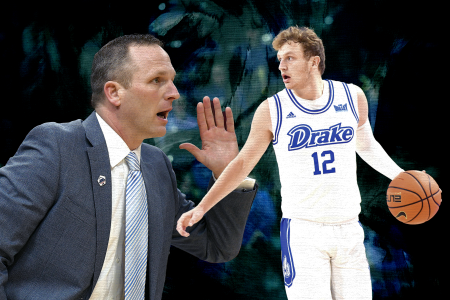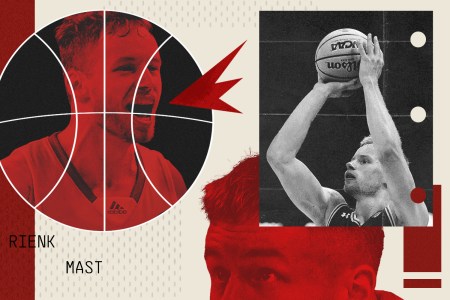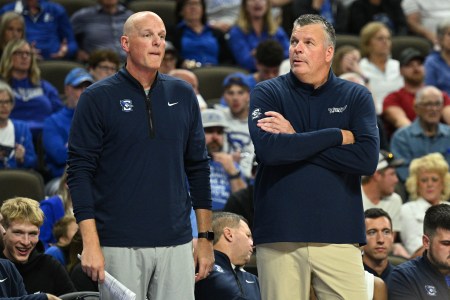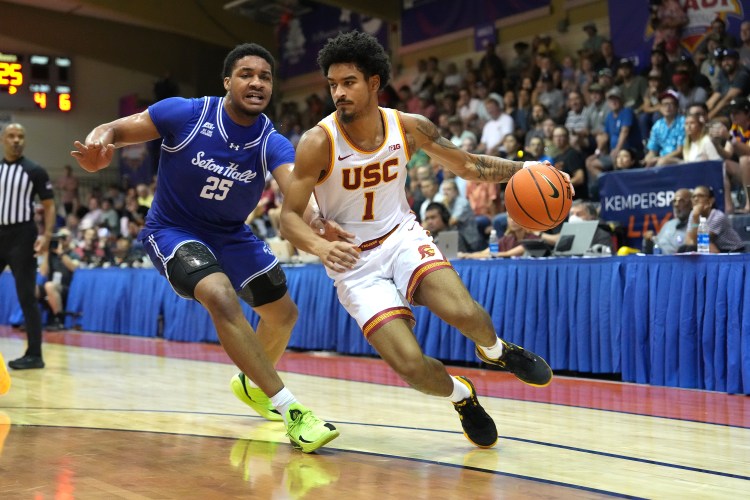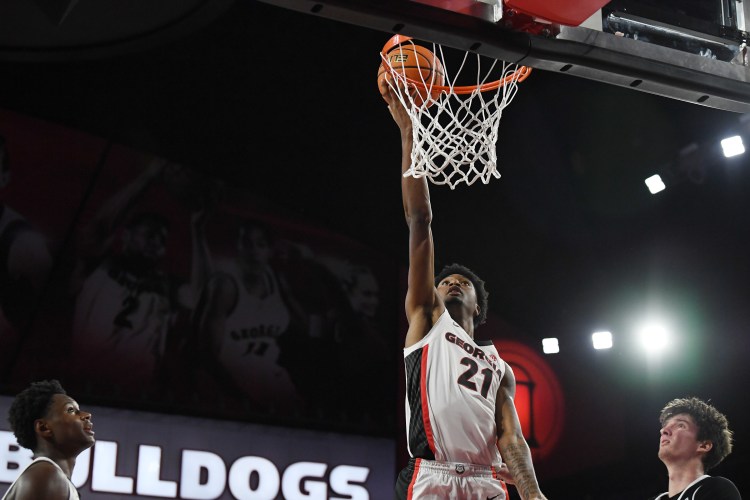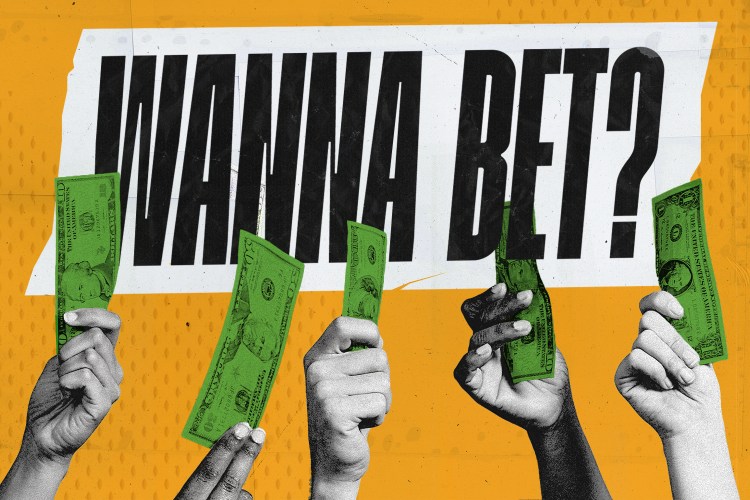Fran McCaffery graduated from Penn’s Wharton School of Business poised for a career in finance. He was an athlete – a point guard with the Pennsylvania Quakers – but the game was a hobby: with a network and a golden degree, McCaffery was casting himself in the mold of a Wharton man.
“I made a decision to come to the University of Pennsylvania, figuring that I would move into the business world in some capacity,” McCaffery told Hoops HQ. “Those guys go to Wall Street.”
In his final months as a Wharton student, the Quakers clinched the Ivy League title and scored a bid to the NCAA Tournament. Nicknamed “White Magic,” McCaffery carried the conference in assists (105) and steals (51), and hoisted Penn into the postseason for the fourth time in five years. It was a watershed moment for McCaffery.
“My career ended. I wasn’t going to make the NBA, but realized how much I loved the game and how much I wanted to stay in the game,” he said, “So I decided to see if I could do that.”
An experiment that started with a season as a Penn Assistant transfigured McCaffery’s life. For the next half century, his career went national – lofting him across six universities, a score of title games and 12 NCAA Tournaments.
He made waypoint stops at Lehigh, Notre Dame, UNC Greensboro and Siena, before landing at Iowa: a quality program in disrepair. McCaffery gave 15 years of his life to the Hawkeyes. He moved his family to Iowa City, brought in his sons and recruited a horde of NBA-caliber players, but it wasn’t enough. After four seasons without a Tournament win and years of declining performance, Coach McCaffery was axed.
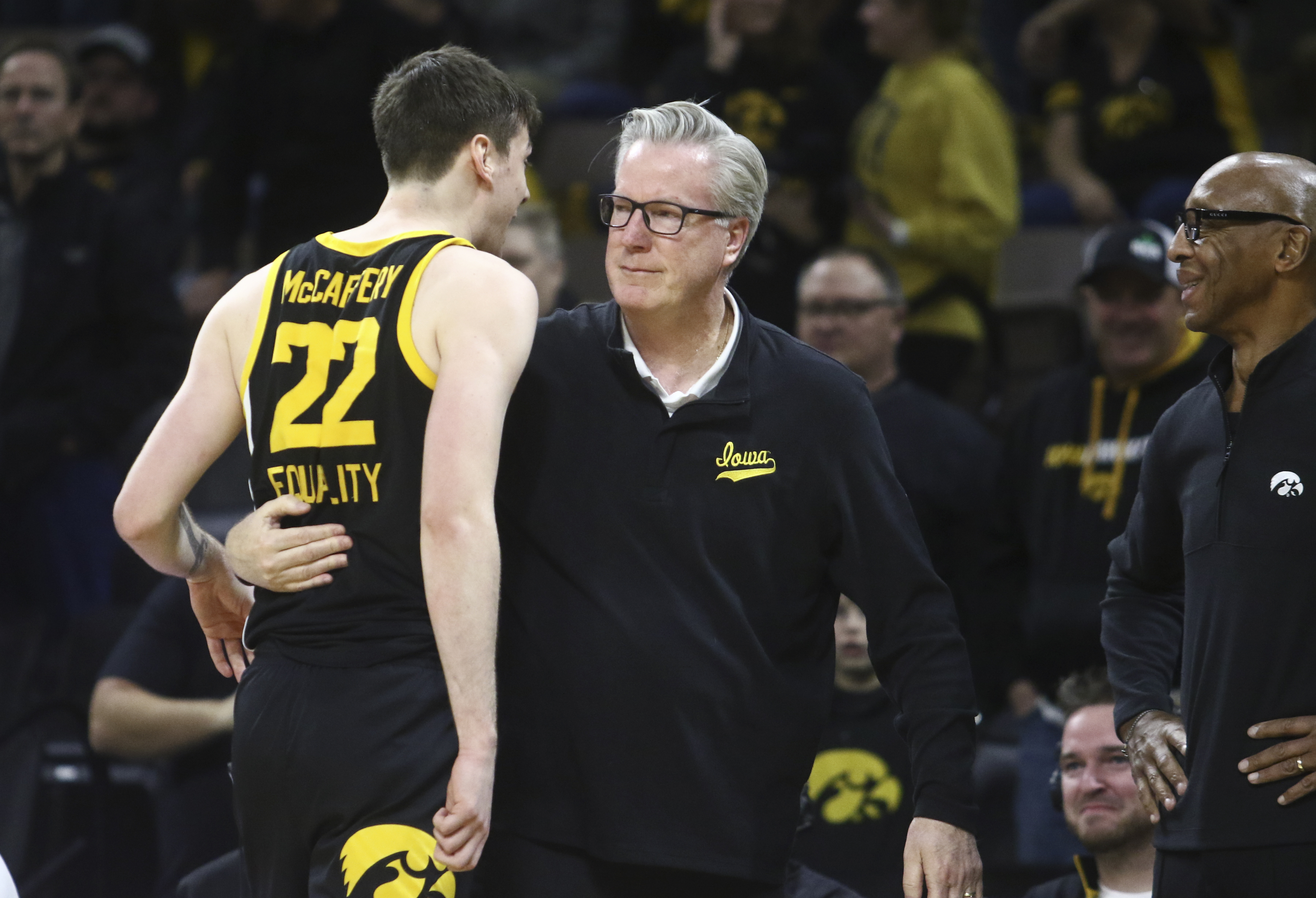
In the aftermath, there was speculation that McCaffery would retire. As a Penn graduate, he transformed his life around the realization that he needed to stay in basketball. Forty-four years later, McCaffery’s attitude remains unchanged.
“I was interested in continuing to work in this profession, and [a Penn] position became available,” he said. “When that happened, it was clearly the place where I wanted to be.”
The trail of opportunity which took McCaffery from Lehigh to Iowa made him one of the most renowned men in the NCAA – but it hadn’t taken him home until now.
On March 27th, McCaffery was named Head Coach of the University of Pennsylvania. His induction took place on the floor of the Palestra, Penn’s “Cathedral of College Basketball.” As Athletic Director Alanna Wren called McCaffery to the makeshift stage, he reflected on a career spent tied to the arena.
“To walk out onto the Palestra floor for a press conference introducing me as the new head coach, that was emotional,” McCaffery said. “Especially walking out there with my family, because they’re seeing this place for the first time, essentially. We played here a couple of years ago … but it’s different when you’re being introduced as the new head coach.”
In the fall of 1978, in the wake of Penn’s improbable run to the Sweet Sixteen, McCaffery transferred back home. He was a prize: a defensive weapon for Wake Forest, but was tethered to his Philadelphia upbringing. McCaffery had spent his entire life dreaming of the University of Pennsylvania.
“When I was in high school, your goal was to make the playoffs, because you got to play in the Palestra,” McCaffery said in a June interview with Hoops HQ. It was early but he was sharp; fresh off a phone call with a recruit. “Having gone to so many games and watching great college basketball players, great teams, great coaches, [it was special] having a chance to play there.”
McCaffery sat through his first year at Penn and watched as NCAA Tournament staple Bob Weinhauer led the Quakers on an astonishing run to the Final Four. McCaffery’s debut season and sophomore year were played under Weinhauer in 1979.
With a dominant pickup in McCaffery, the Quakers pushed to the Second Round in 1980, a feat which they’ve replicated just once in the succeeding 45 years.

Off the court, basketball was an afterthought. McCaffery’s goal in transferring was to earn a degree and enter the corporate sphere. Between games, he built his resume, excelled in coursework, and patched a portfolio which won him admission to the Wharton School of Business in 1981. As an undergraduate, a career in hoops wasn’t on McCaffery’s radar.
“I just wanted to get an education,” McCaffery said. “[That’s why] I transferred over. So I’m taking marketing, management, accounting, finance, economics and going down that road.”
McCaffery enjoyed a breakout senior season which culminated in an Ivy League crown and a return to the NCAA tourney.
The Quakers fell in the First Round to fifth-seeded St. John’s, limped into the offseason and lost Coach Weinhauer, but the season’s effect on McCaffery was profound.
“I realized how much I loved the game and how much I wanted to stay,” he said.
As luck would have it, Weinhauer’s replacement was in dire need of a front office. His name was Craig Littlepage, a bright-eyed, 30-something who had graduated from Wharton 10 years prior. In their overlap, Littlepage took a liking to McCaffery and offered him a one-year job as an assistant coach. The dominoes began to fall.
“Coach Littlepage gave me a job opportunity. And then Coach Weinhauer offered me one, and then Coach [Tom] Schneider offered me one,” McCaffery said. “I started as a little man on the totem pole, then moved my way up.”
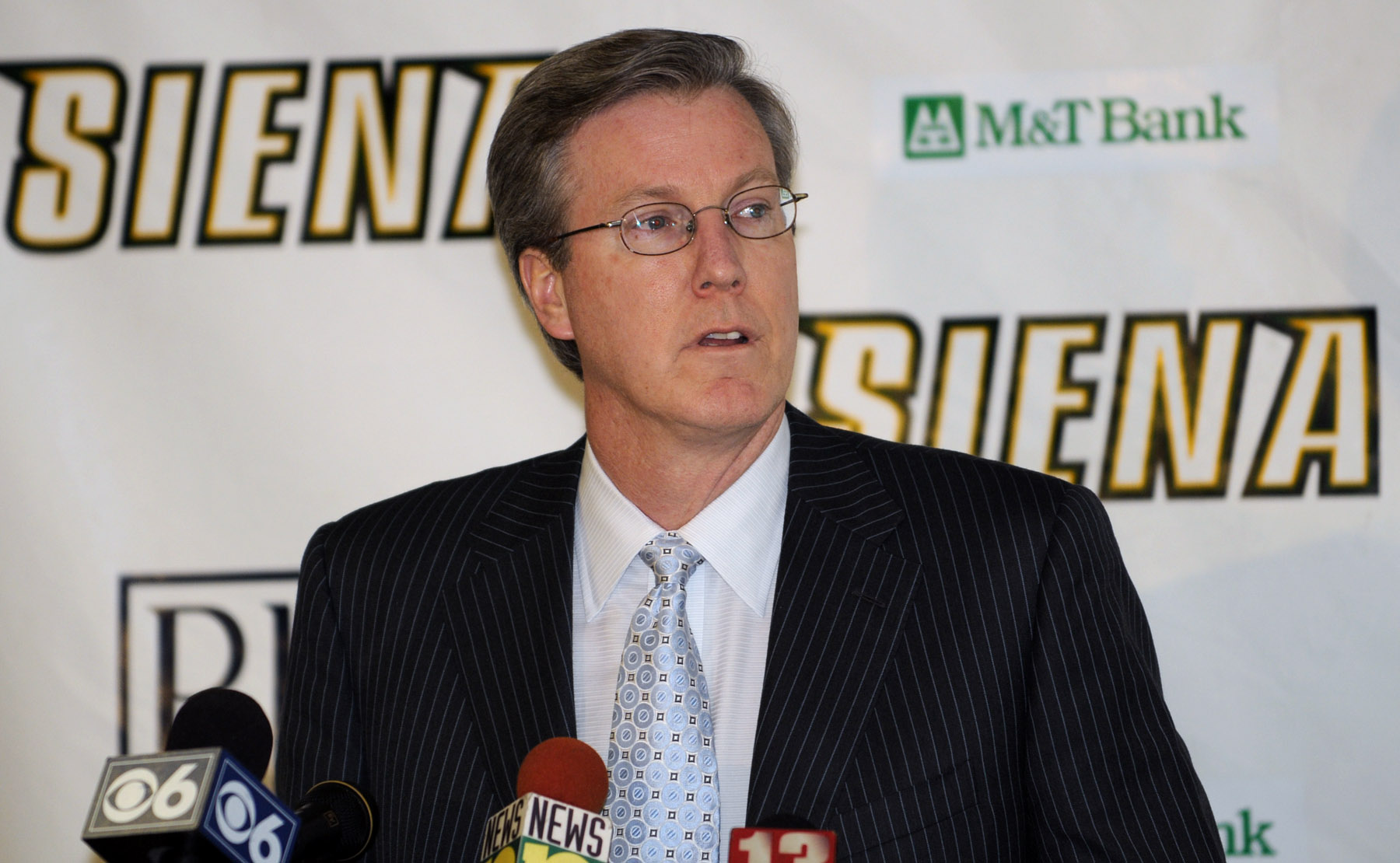
McCaffery was named program head of Lehigh University in 1985. At 26, he was among the youngest coaches in NCAA history. His success was passion manifest. “It was my love for the game and my desire to impact young people, help them become better players, but make sure they graduate,” McCaffery said. “I’m happy to say that I maintain a number of great relationships with those guys.”
In the quarter century which followed, McCaffery worked through mid-majors, with coaching tenures at Lehigh, UNC Greensboro and Siena. An assistant stint at Notre Dame conditioned him for the power 5, and he was given the opportunity to test his mettle in 2010, when he was tapped by the University of Iowa to reverse the course of its struggling program.
McCaffery packed up, resettled, and pumped his lifeblood into the Hawkeye program. His focus was on pace – cranking up possessions, scoring in transition and recruiting players with a quick first step. Iowa’s points per game jumped from 67.2 in McCaffery’s first season to 82.0 in his fourth.
In his 15-year term, the Hawkeyes reached the NCAA Tournament seven times, a record improved by acknowledging a four-season rebuild in which McCaffery found his footing as a Big Ten super. His Tournament results were middling, and Iowa failed to push past the Second Round in any of their appearances. Postseason qualifications were fueled by McCaffery’s pointed approach to recruitment, which emphasized comradery as the primary engine of a successful team.
“The first thing you do is you recruit young men with character,” he said. “So you’re bringing in guys that are naturally going to be good teammates, that are actually going to care about each other, that are actually going to prioritize winning. Then you continue to nurture that along the way with communication.”
Scouting through nature has proved a honeypot for high-caliber athletes, who McCaffery claims are separated by mentality first and athleticism second. “It’s the mental side and the character side that separates them,” he notes. “In terms of work ethic, preparation, being the best player, but not trying to prove it every minute of every day to everybody. They just are.”
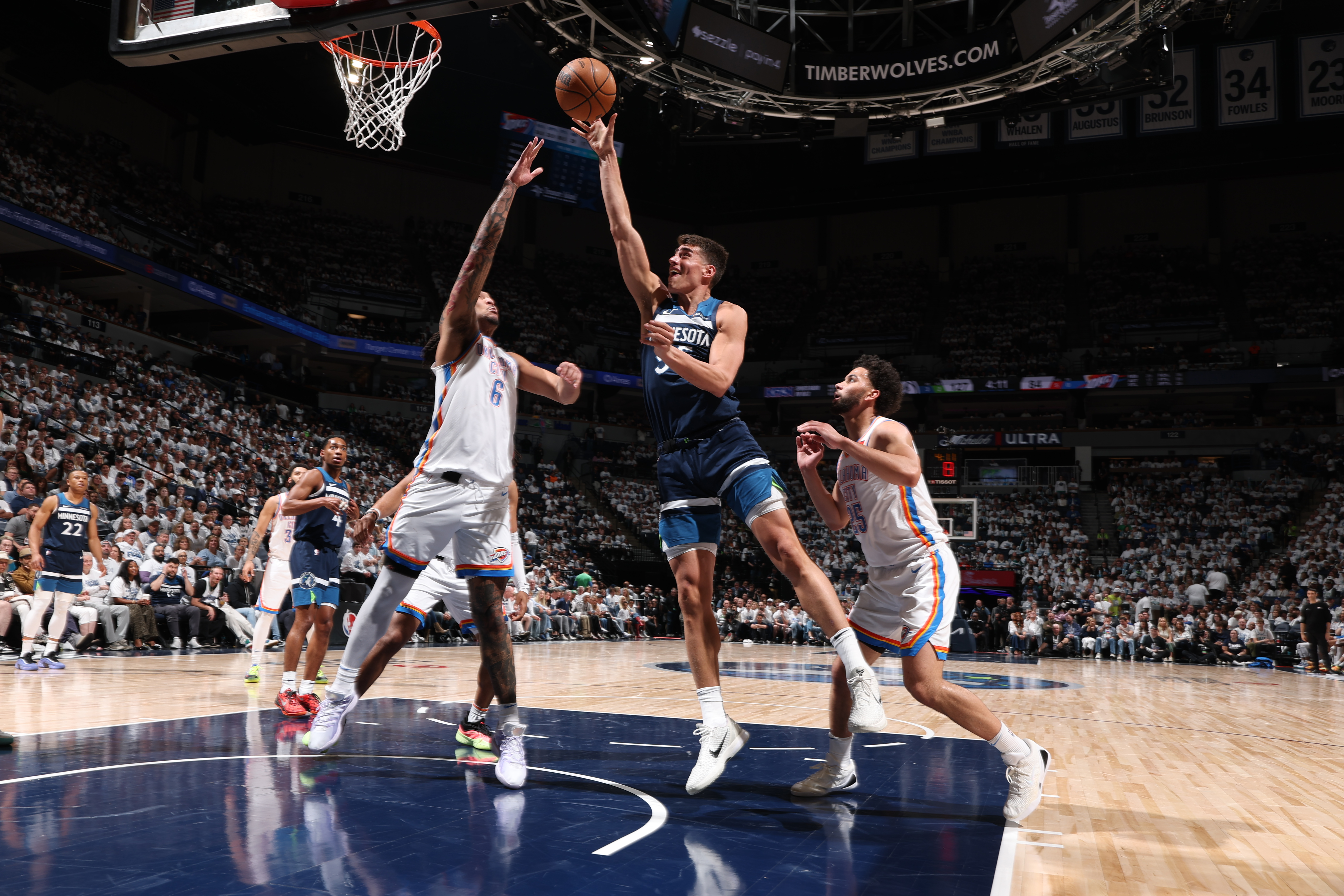
Across four completed tenures as head coach, McCaffery has sent a cohort of athletes to the NBA. Among his NBA alumni are Joe Wieskamp (2021 NBA Draft), Devyn Marble (2014), twin-jets Kris (2023) and Keegan (2022) Murray, and Luke Garza (2021) – the most decorated athlete on any McCaffery lineup.
McCaffery’s most recent star player, 6-foot-8 senior forward Peyton Sandfort, was his pet project last season and a critical component in Iowa’s push through the Big Ten tournament. The 15th-seeded Hawkeyes upset Ohio State in the First Round, but struggled against Illinois in the Second. With thirteen minutes left in the match, McCaffery was slapped with two consecutive technicals and ejected. The Illini were awarded four free throws, putting the game out of reach. Sandfort’s collegiate career ended with his Coach sitting in the locker room. McCaffery was axed the next day.
His 15-year term amounted to four First-Round Tournament victories, seven winning seasons in-conference and a runner-up finish in the 2013 NIT. McCaffery’s termination followed a dismal season which saw Iowa finish 12th in the Big Ten. He entered the coaching carousel disgraced, and scorned by a program he had given 15 years of his life.
Half a century in the NCAA had weathered him, and McCaffery was now among the oldest coaches in the league. But he had no interest in retiring.
“The [Penn] position became available,” he said. “When that happened, it was clearly the place where I wanted to be.”
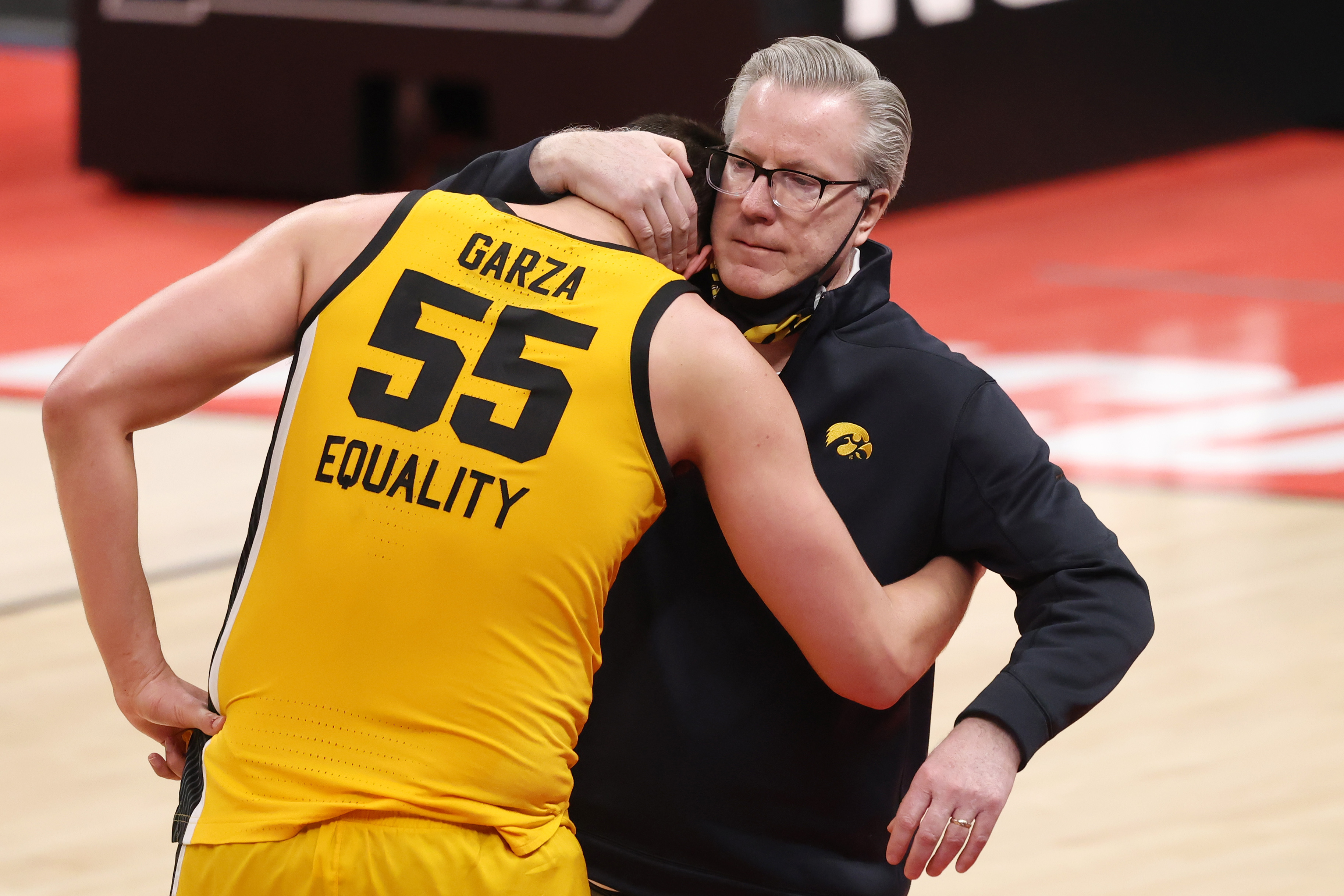
In March, McCaffery walked the length of the Palestra floor as a Quaker for the first time in four decades. In the stands were faces from years past – friends from college, old professors and Weinhauer, now 85, who may yet have a role to play.
“He was the main reason I got into coaching and he stays connected to the program,” said McCaffery.
The Penn McCaffery returns to is not the one he left. After Littlepage’s departure, the team’s momentum slowed and by the mid-2000s, it had stopped. Penn won just one Ivy League title after 2007.
McCaffery inherits a lethargic program but not a hopeless one. Stand-out performances from 6-foot-5 junior forward Ethan Roberts and 6-foot-3 sophomore guard Sam Brown kept the Quakers within three wins of qualifying for the Ivy League Tournament. Development in the Ivy League is also abetted by low-turnover.
“We only had one guy leave here,” McCaffery said. “Players come here for all the right reasons, so I’m going to connect with them, communicate with them, care about them, and they’re going to want to get the Ivy League education.”
That guarantee is critical in the oncoming era of revenue sharing. While most of the NCAA bids for top talent, the Ivy League has opted out entirely, citing a longstanding commitment to limelight academics. McCaffery’s workaround is twofold, and begins with profit incentive:
“We can facilitate legitimate work opportunities, internships, where student athletes can be paid, not overpaid, but paid,” he said.
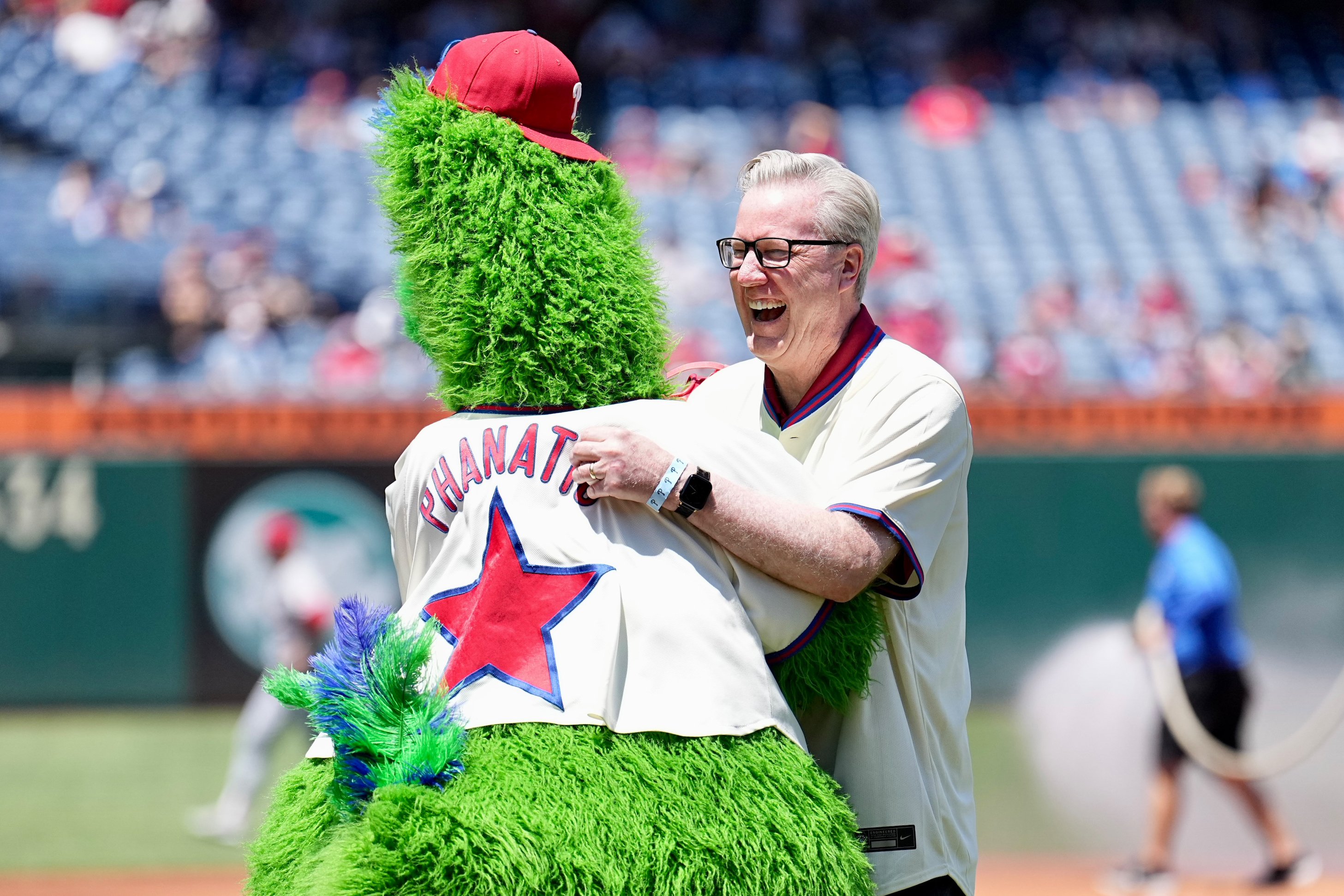
Second, he can harness an approach close to his heart, emphasizing the value of a Penn diploma. “There’s no question that the players who choose to come here want to network with phenomenally successful people,” he adds. “They want to be challenged every day in this classroom. It’s not ‘I’m going to go play basketball for money and that’s my job’ – we’re preparing for life after basketball here.”
McCaffery’s strategic aim is a complete reversal of fortune, beginning with a targeted approach to recruitment. “We’re gonna look for athletic big guys, the guys that can triple, pass and shoot, move the ball, run,” he said, “quality motion offense.”
The Quakers emerged from the 2024-25 season ranked 206th in tempo, per KenPom. Their season average of 69.7 places them well behind conference leaders like Dartmouth (73.6), Cornell (73.6) and Yale (70.6). All three of those schools qualified for last year’s Ivy League Tournament, which scored Yale an automatic bid to the Big Dance.
“We play a certain style,” McCaffery said. “We’re going to play fast. We’re looking for players at every position that can impact with talent and an understanding that we’re going to play fast.”
That hyper-offensive strategy, which McCaffery deployed at Iowa, always ran in tandem with his focus on character. His plan for Penn is no different.
One Burning Question About Each of the Big Ten's Four New Coaches
There are four new coaches in the Big Ten this year. Let’s set some parameters to know whether March Madness is a realistic expectation.
“The goal is building a culture where you have a band of brothers in the locker room,” said McCaffery. “The first thing you do is you recruit young men with character. So you’re bringing in guys that are naturally going to be good teammates, that are actually going to care about each other, that are actually going to prioritize winning. Then you continue to nurture that along the way with communication.”
While McCaffery appears set for the back-nine of his career at Penn, his children have settled into their own on the hardwood. Older sons Connor and Patrick, both four-star recruits who played for their dad at Iowa, have graduated but remain tethered to the game.
“Going on the road together, having them with us in meetings, in practice, the good times and the bad, overcoming adversity together was something really special,” said McCaffery.
Connor followed in Fran’s footsteps and is primed for his second season as an assistant coach for Butler. He’s also one of the women’s game’s most prominent fixtures thanks to his relationship with former Iowa megastar and current Indiana Fever ace Caitlin Clark. While some were late to the Clark show, Connor and Fran had courtside seats from day one.
“She’s an incredible talent,” said McCaffery. “Things always impressed me about her, and I’m talking about when she was a freshman. Her court vision was – it is – so elite. To me, that’s her best skill. She can really shoot it, she can score. She gets to the rim. But how she involves her teammates and how that equates to winning is really what’s most impressive to me.”

McCaffery has logged hours with Clark, but knows game and relationship talk are best left to the couple.
“She has a coach. What I give her is support. Connor is really good with her. He understands the game. He understands her, he goes to as many games as he can, because obviously they’re in the offseason. For him, she goes to his games and supports him. They talk basketball all the time. So maybe they’re both giving each other advice,” said McCaffery. “[Their relationship], that’s not something I get involved with. You know, I leave it up to them.”
Patrick is pursuing hoop dreams of his own. In June, he signed with the Sacramento Kings and plans to compete in the NBA Summer League. And there’s another McCaffery waiting in the wings: littlest son Jack – also a four-star recruit – is committed to play for Connor’s Butler Bulldogs next season.
Back in Philly, McCaffery settled into his new residence last month, a building owned by a friend from college. In the weeks that followed, he spoke to old classmates and coaches, but his rawest memories are tied to the Palestra itself. The Cathedral will become his new home, and the crown jewel on a career spanning half a century.
“It is an amazing feeling for somebody who grew up going to the arena on a regular basis with my brother and my parents, watching college basketball for so many years and then being fortunate enough to play here,” said McCaffery. “I take great pride in the history of this basketball program. I’m in an office complex connected to the Palestra. And, I’m thinking to myself, I get to go to work every day in the Palestra. I just feel blessed and honored to be here.”

